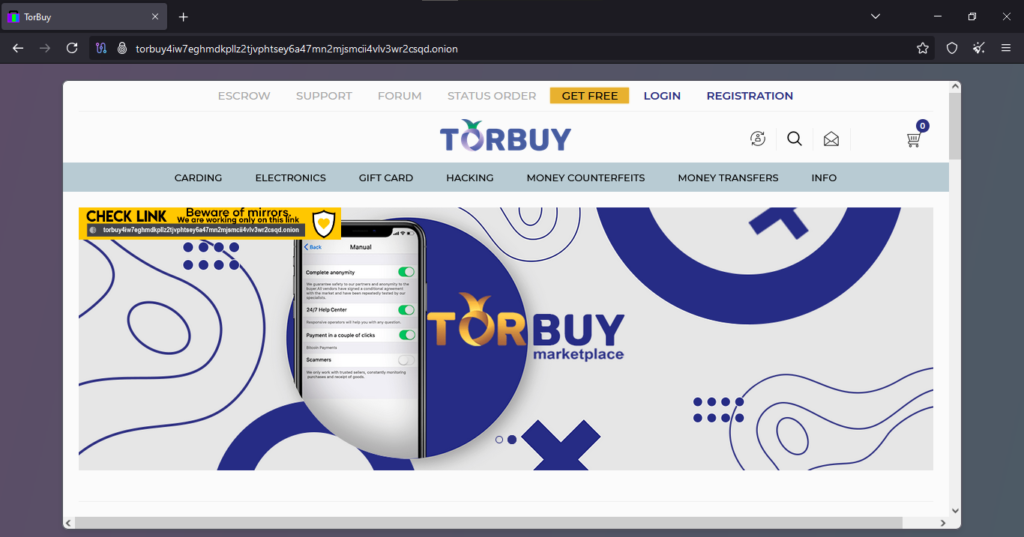Table of Contents
ToggleTorbuy – TOR Scam Report (186)
Onion Link : http://torbuy4iw7eghmdkpllz2tjvphtsey6a47mn2mjsmcii4vlv3wr2csqd.onion
Scam Report Date : 2025-02-05
Client Scam Report Breakdown
Original Scam Report :
The client describes their experience attempting to make a small purchase from a website called PayPalmania. After completing the transaction, they noticed that their payment was not credited, meaning they did not receive what they had paid for. When they reached out to the site to complain, they were informed that the website they used was a fake version of the real PayPalmania site. The scammers then provided them with what they claimed to be the authentic link to the legitimate PayPalmania website. However, upon further investigation, the client realized that the second link was also fraudulent, meaning the entire operation was designed to deceive users into repeatedly sending payments to different scam sites.
Defining Terminology and Terms
Several critical scam tactics and cybersecurity terms apply to this case. Credit failure refers to a scenario where a payment is completed, but the expected product or service is not delivered. This is a common tactic used in advance-fee scams, where scammers take money upfront without ever fulfilling the order. Fake websites are fraudulent online platforms designed to mimic real services to trick users into making payments. A particularly deceptive technique in this case is the “redirect scam,” where the scammers, instead of outright denying the fraud, claim the victim used an imitation site and then provide an alternative link—which is also fake—to extract even more money. This strategy plays on the victim’s trust and confusion, leading them to believe they still have a chance of recovering their funds by using the so-called “real” website. Such tactics are commonly used in phishing schemes and deep web marketplace fraud, where criminals clone well-known platforms to exploit unsuspecting buyers.
Analysis of the Scam and Recommendations
The scam experienced by the client suggests a network of interconnected fraudulent sites designed to continuously deceive victims. Instead of outright denying wrongdoing, the scammers create a loop by convincing victims they have made an error and pushing them toward another fraudulent site. This method increases the likelihood that a victim will send multiple payments before realizing the entire operation is a scam. To protect against such fraud, users should always verify websites through independent research. This includes checking official forums, established scam report websites, and comparing domain names against legitimate sources. Additionally, using secure payment methods with buyer protection, such as credit cards or trusted escrow services, can prevent irreversible financial losses. The client’s case highlights the risks of engaging with unverified online marketplaces and serves as a reminder that scammers frequently manipulate victims by appearing helpful while actually leading them further into the scam.







